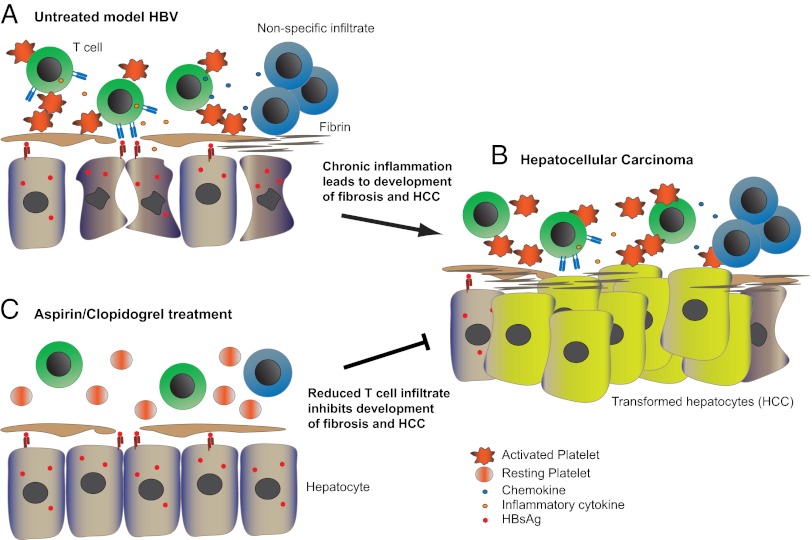Fig. 1.
Inhibiting platelet activation can ameliorate the development of HBV-induced immune-mediated HCC. (A) Activated platelets promote the accumulation of HBsAg-specific CD8 T cells in the liver. Upon recognition of hepatocytes expressing HBV antigen, specific T cells produce inflammatory cytokines, inducing chemokines that recruit additional antigen-nonspecific immune cells. (B) Repetitive cycles of hepatocyte death and regeneration in the milieu of chronic liver inflammation lead to the development of fibrosis and HCC. Transformed hepatocytes lose the expression of viral antigens and can no longer be recognized by CD8 T cells. (C) Suppressing platelet activation by Asp/Clo treatment significantly decreases the number of HBV-specific CD8 T cells and secondary nonspecific infiltrate, ameliorating liver injury and fibrosis and reducing the development of HCC.

